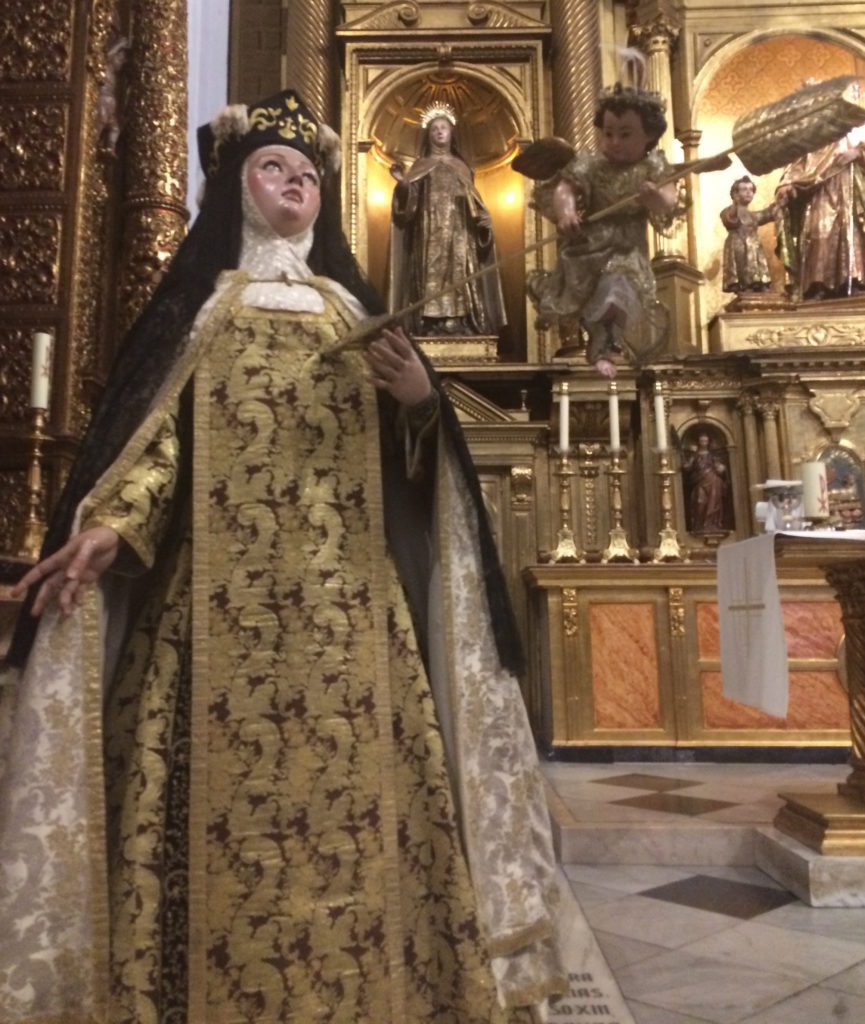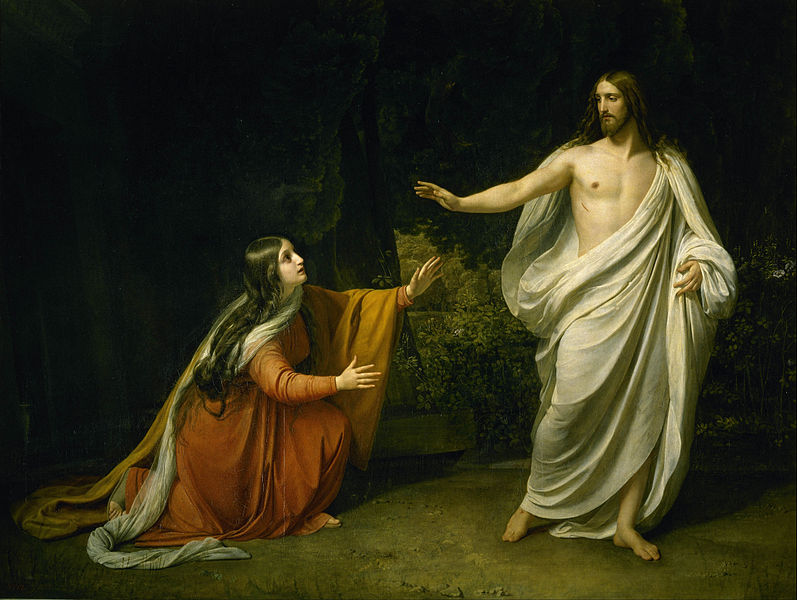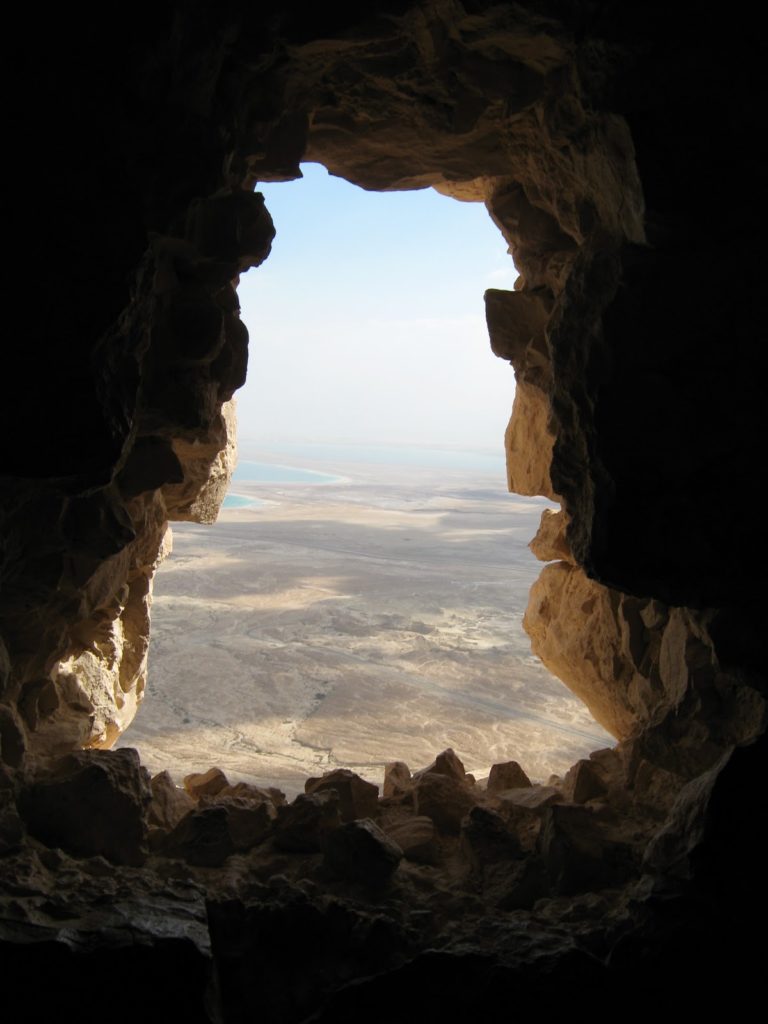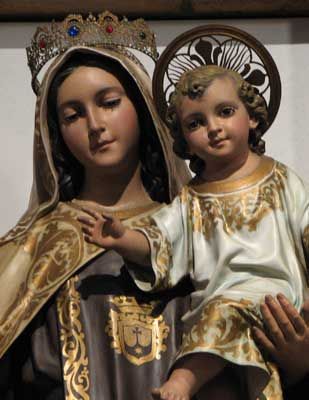PART I
There seems to be two general categories of joy. Natural joy happens in time. It is not a constant condition but rather a feeling that lifts us up for a while. It comes from possessing something good, looking forward to something good, or a pleasure or happiness that results from some basic good. There is joy in doing the right thing, joy in completing a task we have been evading because it is displeasing to us. There is joy that results from the hard work of earning a college degree. Such natural joys can come from planned activities, or come upon us for no apparent reason whatsoever.
Far deeper and richer a gift, however, is supernatural joy. This is a joy that is eternal. No person has this joy unless he or she prays to God, living so as to enter ever more deeply into a perfecting union with him. St. Bonaventure tells us: “In God alone is there primordial and true delight, and in all our delights it is this delight we are seeking.” Christian joy is more than pleasure or happiness. It comes with a price. We must communicate with God, obey his teachings and live with the intentions of pleasing him. Christian joy, not limited to positive emotions, is a by-product of knowing God personally and intimately. It is more like a serene inner glow. Perhaps, we can visualize it as a tranquil, deep lake hidden, at the bottom of the soul. When difficulties arise and seem to overwhelm us, we seek solace and refuge by being submerged in its placid, clear, and restorative waters. With the help of divine grace, we rise up, refreshed and invigorated, ready to face our challenges with peace, with faith, and with love. This illuminates and transforms our spiritual landscape, so that we can manage whatever life has in-store for us. This sign of the eternal assures us that we should not fear. Problems purify us, as prayer draws us closer to the reality for which we were created. Anselm of Canterbury knew this, stating: “I have not yet thought or said, O Lord, how much your blessed ones will rejoice. Surely, they will rejoice in the degree that they will love, and they will love to the degree that they will know. How much will they know you in that day, Lord, how much will they love you?”
Jesus is at the center of all our love, all our knowing, all our rejoicing. This joy flows from him: when we pray, worship, receive his sacraments, undertake good works, we are living in the light of eternal salvation—the God-man, Jesus Christ. Jesus is the perfection of lasting joy, the sole goal of our Christian life. He is the only person who gives us the fullness of joy because he is the only one who can completely fulfill our deepest human needs, desires, and longings.
Christian joy is usually unaffected by external circumstances because it is a prayerful focus of the heart. True Christian joy is not something always, or even usually, “felt.” Rather, it is a deep, settled commitment, secured in God, bonded in hope, and lived out by Christian principles. It is our anchor in this swirling sea of life. This disposition does not demand that we be perpetually cheerful. Common sense tells us that this is simply not real. The sacred is in normal, everyday life. God is found all around us—from the monastery to the mortuary, from the corner church to the corner cafe. John Paul II realized this better than most: “There is no law which lays it down that you must smile, but you can make a gift of your smile. You can be the heaven of kindness in your family.”
Christian joy is based on our confidence in being a daughter or son of God, who loves us tenderly and will never abandon us. Evelyn Underhill once wrote: “This is the secret of joy. We will no longer strive for our own way; but commit ourselves, easily and simply, to God’s way, acquiesce in his will, and in so doing, find our peace.” This is possible when prayer is an all important daily commitment. Intentional prayer is the proof that we believe in God’s particular and unique love for us. The only one who will “always be there” for us is God, loving us always as he loved his own Son. His love is unchanging and consistent, making it possible for us to trust him in all circumstances. Our trust in God develops from heartfelt prayer, deep faith, and a yearning for his intimacy. Our love is, thus, a fruit of such prayer. St. Teresa of Calcutta reminds us how to love this way: “Give love to your children, your wife or husband, to a next door neighbor… Let no one ever come to you without leaving better or happier. Be the living expression of God’s kindness; kindness in your face; kindness in your eyes; kindness in your smile; kindness in your warm greeting.”
Joy requires living in peace. Because peace begins with ourselves, we must make a decision to live, each day, from a joy inherent in our union with the Trinity, realized through our practice of prayer. Only by loving, and being loved, by God are we are free to be ourselves, free to blossom, and free to relish our moments of grace. This freedom flows underneath the feasts and famines of our days because our constant strength is in God, in his love: “The greatest honor that you can give to Almighty God, greater than all your penances and sacrifices and mortifications, is to live joyfully because of the knowledge of his love” (Julian of Norwich). Because prayer helps us live in the company of Jesus Christ, we strive not to be cynical or sarcastic. We ignore rumors, avoid gossip, and strive to see people as human beings created in the image and likeness of God. Problems are then opportunities to collaborate with God, choosing joy each day, and in so doing, being liberated from the constraints of negativity. Deep Christian joy that blossoms from the heart, and shared with others, fosters a common unity and purpose. This is evident when we share aspects of our Catholic faith, as St. Augustine knew: “When many men rejoice together, there is a richer joy in each individual, since they enkindle themselves and they inflame one another.”
Jesus empowers us with his serenity in the midst of personal trials. This is why joy is the greatest sign of God’s presence. Our lifeline with Jesus is prayer, increasing our awareness of his expansive presence. It is important to remind ourselves that prayer is more of the will, and less of feelings or intellect. We often put off praying until we think we have made everything right in our lives, first. However, there is no correct mood for prayer: being distracted or having inappropriate thoughts does not mean we are praying poorly. It means that we are being faithful to the discipline of daily prayer. Prayer is thus an act of the will, wherein we desire to give all our confused thoughts and problems to God Too much reflection on the negatives in our past, wears us down and erodes the joy of the present. We should, therefore, leave the past to God’s mercy, living, instead, in the present. The same holds true for the future: for if we allow the past or future to crash into the present, they inevitably tarnish the grace and sacrament of the present moment. The spirit of joy requires discipline of the mind. We need to control our wandering thoughts, and try, as best we can, to enjoy the life in the gift of today. If we altruistically love ourselves and our neighbor, we are active components of God’s love.
About Carolyn Humphreys, OCDS
Carolyn Humphreys, OCDS, OTR, is a Discalced Carmelite Secular, and a registered occupational therapist. She is the author of the books: From Ash to Fire: A Contemporary Journey through the Interior Castle of Teresa of Avila, Carmel Land of the Soul: Living Contemplatively in Today’s World, Mystics in the Making: Lay Women in Today’s Church, and Living Through Cancer, A Practical Guide to Cancer Related Concerns. Her latest book is Everyday Holiness: A Guide to Living Here and Getting to Eternity. You can find her reflections online at contemplativechristianityorg.wordpress.com.











